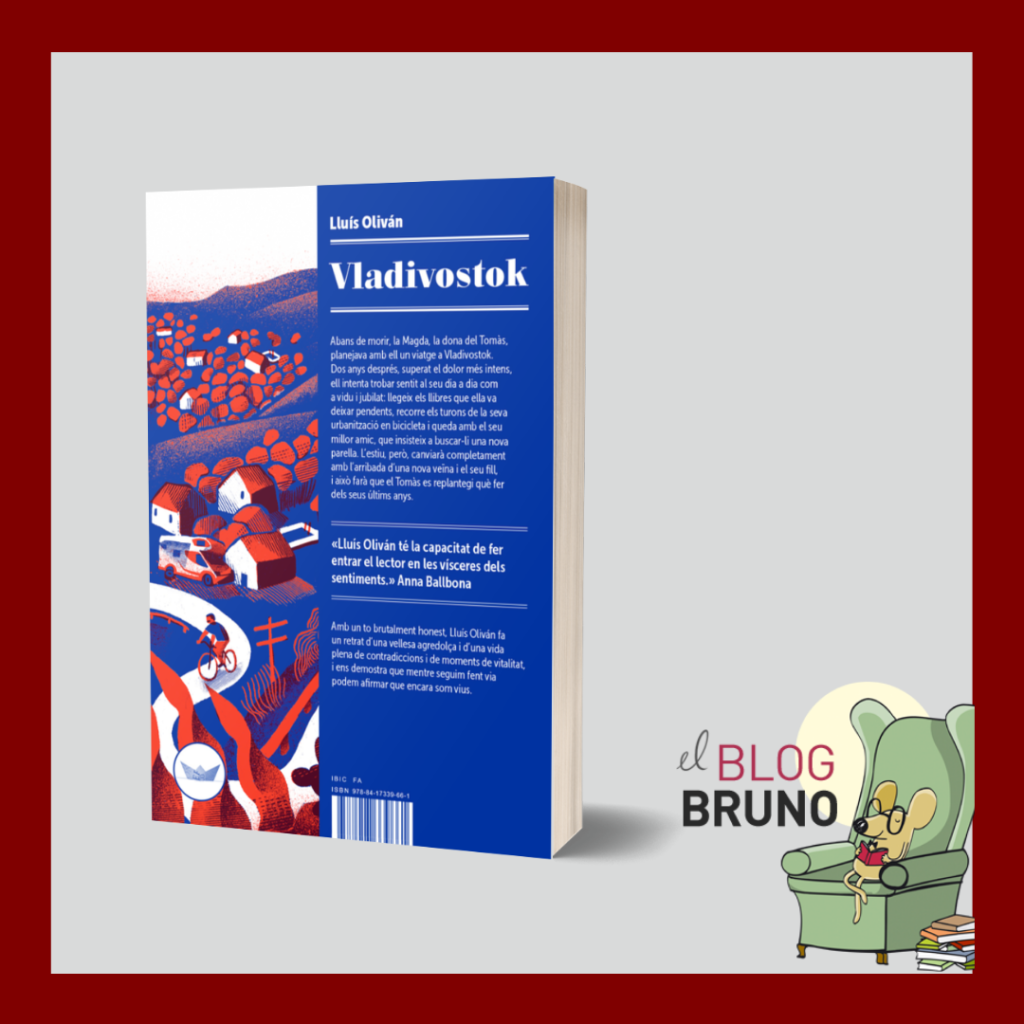THE TRAIN OF LIFE
When we reach an age, we see life with different eyes. You don’t want to lose hope and want to see in each step the best of it, but life starts to give warning cries that this train is halfway through and the clock keeps ticking, that everything speeds up and, regardless of the fuzz around you, the train never slows down or stops.
In this novel, Tomás, the main character, loses his wife, Magda, when they were planning to visit Vladivostok. Two years later Tomás tries to make sense of his daily routine as a retired widow: he reads the books she left pending, cycles through the hills of his neighborhood and meets his best friend, who insists on pairing him up. But this summer will change drastically, with the arrival of a new neighbor and her son, making Tomás reconsider what to do in his last years.
This is the reflection I made while reading Lluis Olivan’s novel, VLADIVOSTOK, published by Periscopi, which has recently had noticeable successes like Marta Orriol and her novels LEARNING TO TALK TO PLANTS and A SWEET INTRODUCTION TO CHAOS, also published in Spanish by Lumen.
We have all imagined what we would do when we retire or when we have more spare time, what nobody sees is that we overidealize those moments and what we should consider. Luis dives, through his character, into the meaning of life, the desire of making things when you are not able to, and that other people’s lives can be reflected on your own wishes and lacks.



